Sheep are ideal livestock animals to keep in a homestead because of their gentle nature. They are relatively easy to handle compared to other farm animals like cows, chickens, and even goats. Sheep can also easily adapt to most climates and can live even with minimal shelter. However, raising sheep on your property still requires careful planning, especially if you have neighbors living nearby. Being a responsible neighborhood farmer can help you avoid several issues that may lead to nuisance complaints from those living around you. Avoiding strained relationships with your non-farming neighbors can make a huge difference on how much you enjoy your farm, and being a good neighbor while raising sheep is well worth the effort.
In today’s article I’ll share five simple ways you can be a better neighbor and avoid conflict with neighboring members of your community.
5 Ways to Be a Good Neighbor as a Farmer
Here are some tips and suggestions that can help you become a good neighbor while raising sheep on your property:
- Research and comply with local, state, and federal regulations,
- Communicate your plan to raise sheep on your property with your neighbors,
- Keep your sheep farm clean, safe, and attractive,
- Invite your neighbors over to see and enjoy your sheep farm, and
- Resolve any complaints promptly and earnestly.
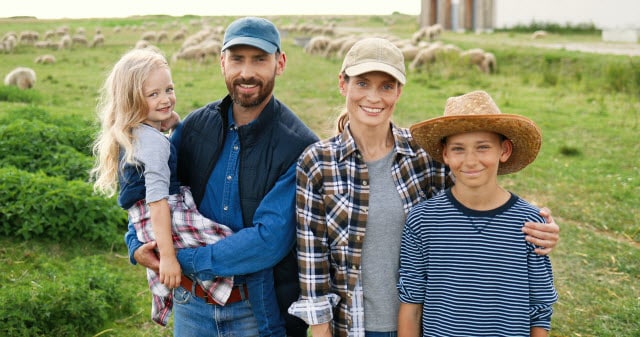
Let’s dig into each of these (and why it’s important) below.
Research and comply with local, state, or federal regulations
Educating yourself with the laws on setting up and maintaining a sheep farm in your community is a must.
Doing this enables you to perform the appropriate farming practices and will help increase your reputation as a conscientious neighbor. While this may not avert potential neighborhood complaints from happening, it can legally protect you should issues arise.
Communicate your plan to raise sheep with your neighbors
Communicating your plans with your neighbors provides the opportunity to exchange ideas.
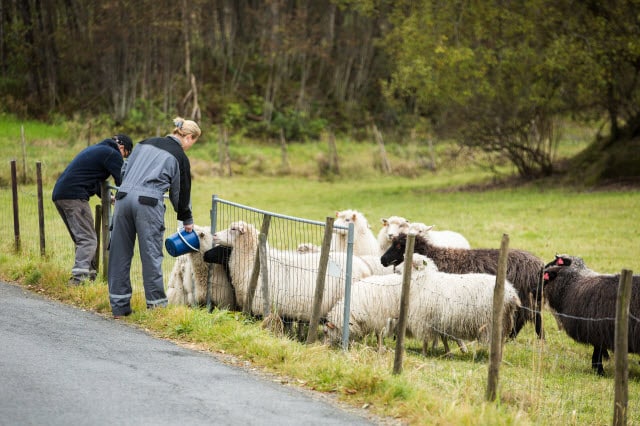
Your neighbors may have concerns about having sheep raised close to their homes, especially if you share a property line. By listening to and taking their concerns and suggestions into consideration, you show that you care about their well-being, too.
This can help establish trust and maintain good relationships with your neighbors.
Make it a habit to keep your sheep farm clean and attractive
When designing and building your sheep farm, think about how it will look like to your neighbors. This is essential because your farm’s appearance reflects your professionalism and how much you care about your environment and the community.
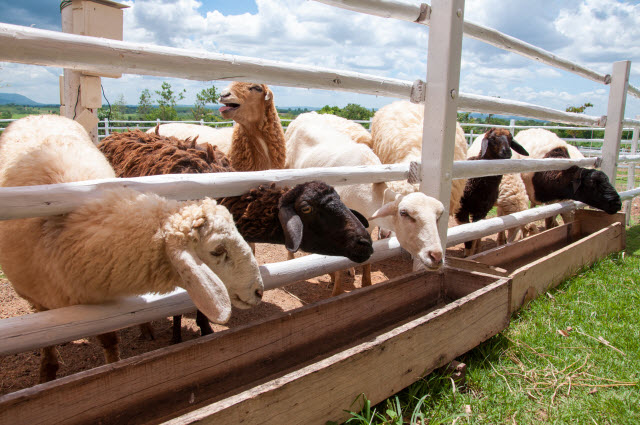
Keep a few areas concealed, such as composting piles and manure storage, which many would consider eyesores. Fencing these areas properly will not only keep them hidden from your neighbor’s view, but will also reduce the possibility of odor and pests from spreading.
Besides screening such areas, it is also a good idea to learn and apply the proper pest, manure, odor, and compost management practices to keep your sheep farm sanitary and to prevent flies, rodents, or predators from invading your property.
Investing in continuing education on farm management and operations is less expensive than having to deal with legal costs should a neighbor files a complaint against you.
Invite neighbors over to see your sheep farm
Complaints often come up because people don’t know what’s going on inside a farm. To address this, give your neighbors a glimpse of how your farm operates from inside.
Let them know the different processes you follow in managing your sheep farm, like the schedules of burning compost piles or garbage disposal.
I’ve personally found that turning shearing day into an event for the neighborhood to watch and enjoy goes a long way toward transforming how neighbors view the farm. Instead of a nuisance, suddenly it’s an educational opportunity for kids.
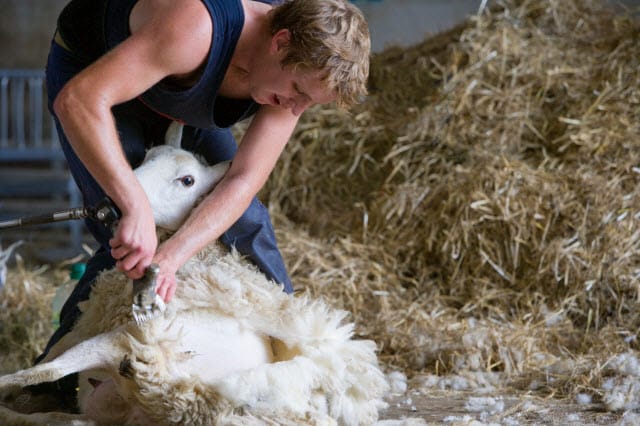
Setting up a folding table with cider, coffee, and donuts, and opening the barn doors so your neighbors can witness the annual shearing occur costs next to nothing, and is a great form of community outreach.
Resolve complaints promptly and earnestly
When a neighbor comes to you with an issue or complaint, always try to resolve it immediately no matter how petty you think it is. Try to keep the following tips in mind when dealing with neighbor’s complaints:
- Listen carefully to what they have to say and be respectful of their feelings.
- Try to put yourself in their shoes as this will help you understand their concerns better.
- Keep an open mind that you may not always be right.
- Discuss possible alternatives, and if necessary, consult with local authorities.
- Agree on a workable solution and devise a way to measure if it is working.
- Some improvements may take time, so keep each other updated as often as necessary.
- Always keep communication lines open.
Being a Good Neighbor While Raising Sheep is Worth It
Cultivating good relationships with your neighbors is one of the most significant (but least talked about) parts of raising sheep in a neighborhood.
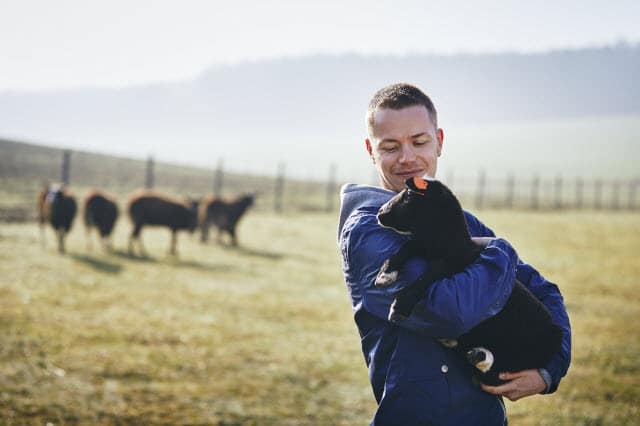
Being friendly, approachable, and considerate of your neighbors will result in fewer disagreements in the long run. Not only that, but it will also foster greater support from your community. Make small gestures to your neighbors and the community to invite them to participate in or share in some of the joys of sheep farming and your farm will be viewed as an asset to the community, not a liability.

